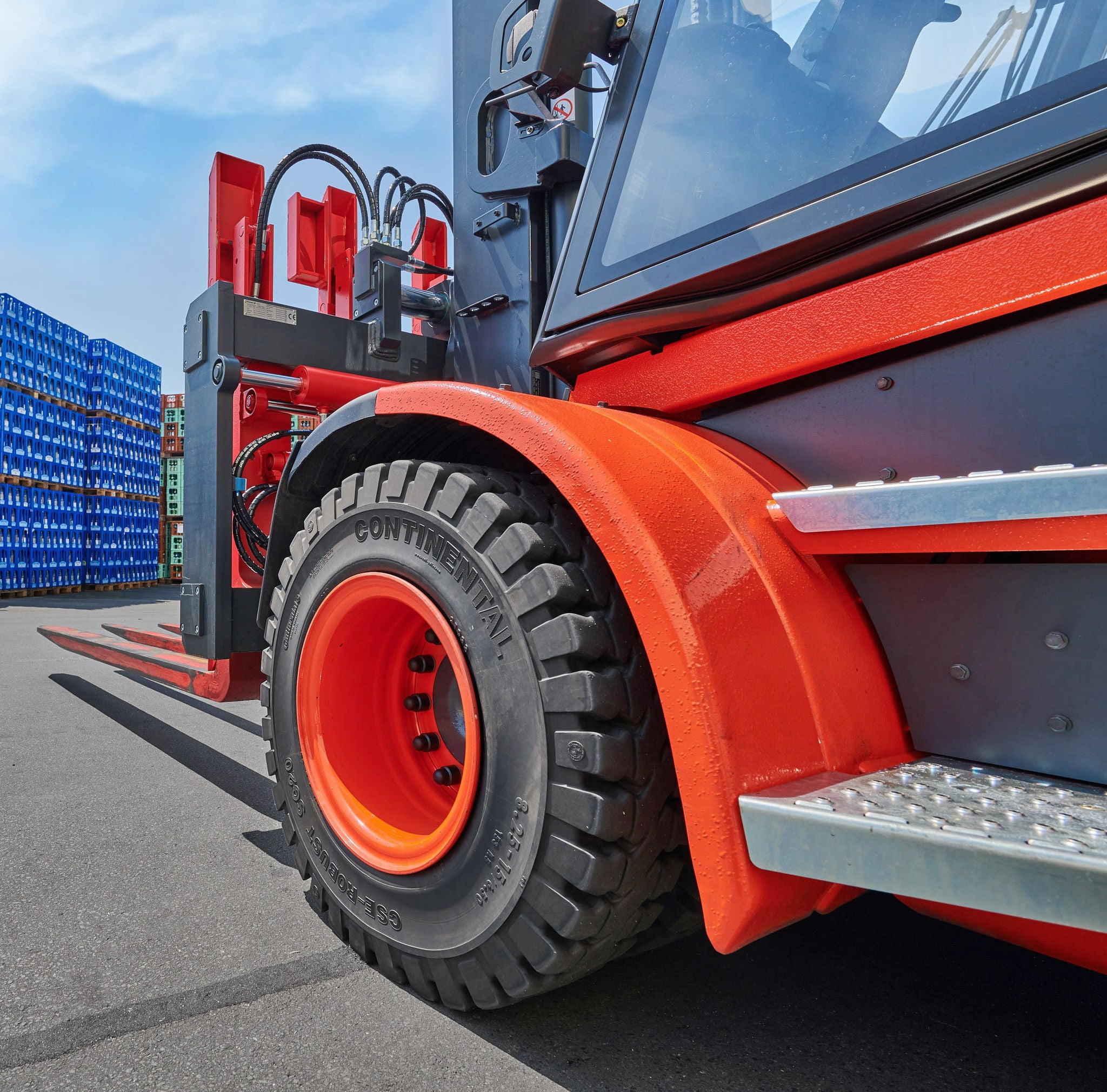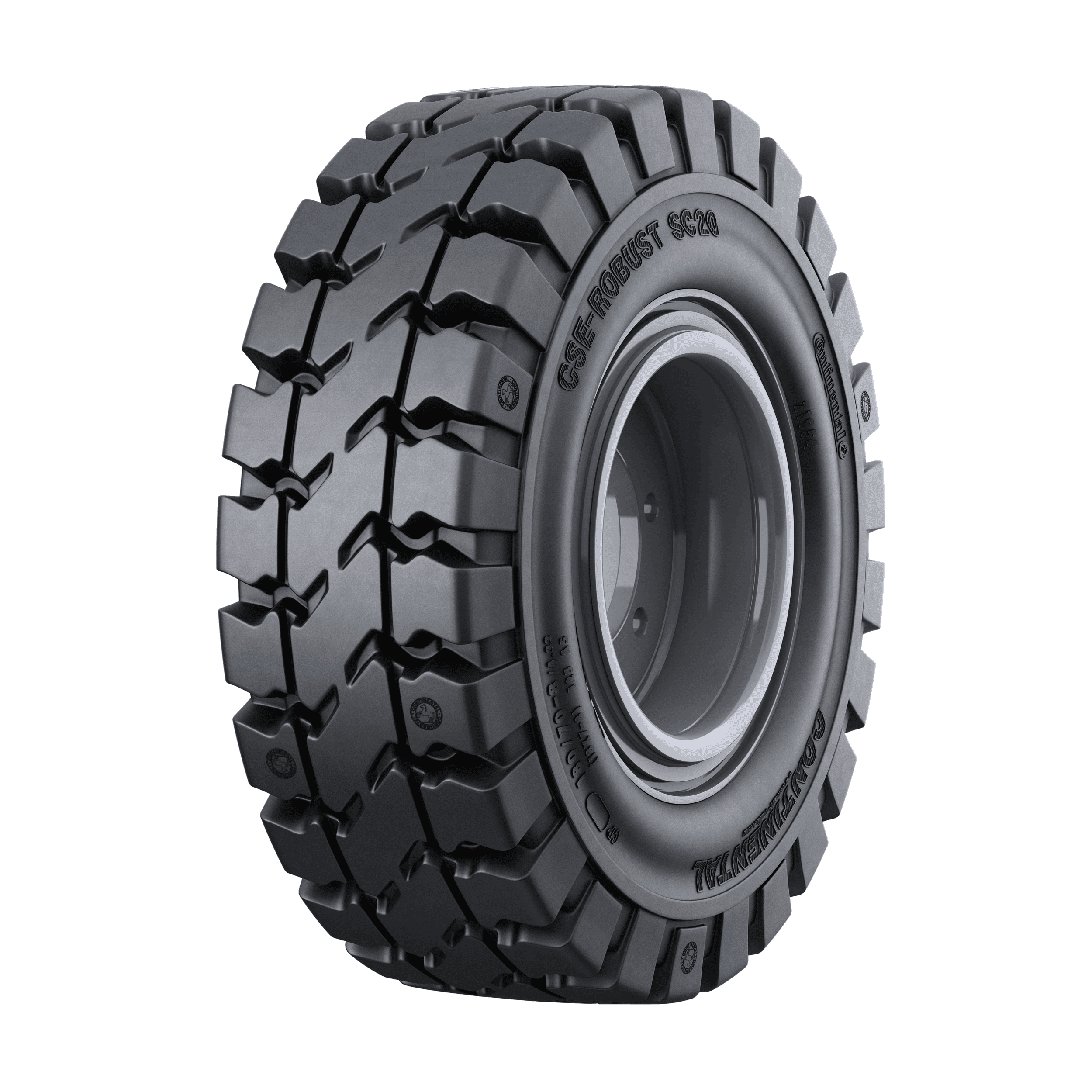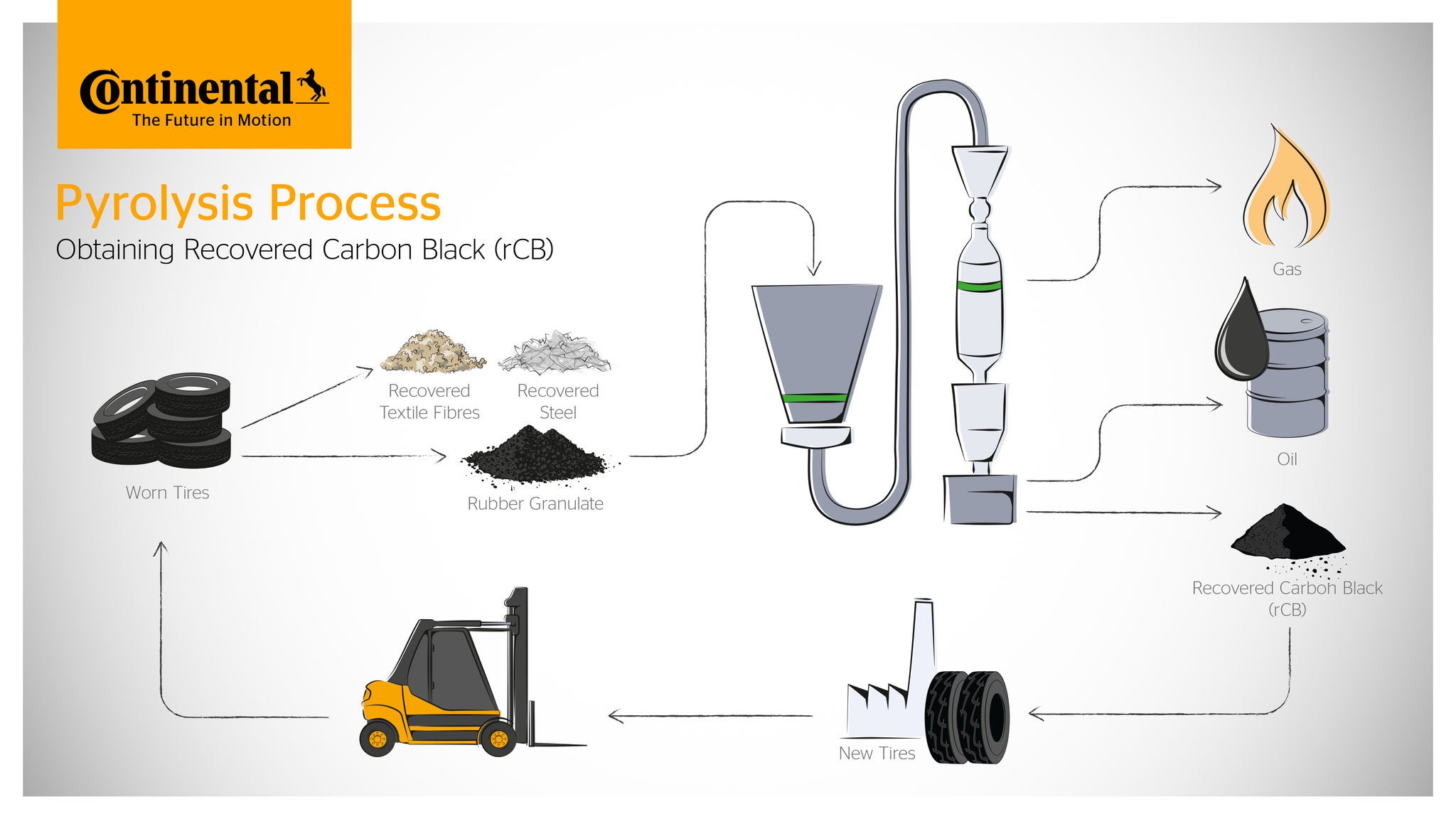Recovered Carbon Black in Solid Tyres
- Solid tyres from Continental’s tyre plant in Korbach now contain carbon black recovered from end-of-life-tyres
- Recovered carbon black reduces use of fossil raw materials and CO2 emissions
- Continental aims to use 100 percent sustainable materials in its tyre products by 2050 at the latest
Continental continues to step up its activities to ensure a circular economy. Recently, the tyre manufacturer added recovered carbon black (rCB) to its newly produced Super Elastic solid tyres at its tyre plant in Korbach, Germany, thus reducing the use of fossil raw materials and CO2 emissions. Solid tyres such as Continental’s SC20+ already contain around 60 percent renewable and recycled materials thanks to their high natural rubber content. By 2050 at the latest, Continental aims to use 100 percent sustainable materials in its tyre products.
The recovered carbon black is supplied by Pyrum Innovations, one of Continental’s partner companies. Pyrum breaks down end-of-life-tyres into their individual components in industrial furnaces using a special pyrolysis process. This allows valuable raw materials contained in end-of-life-tyres to be extracted and recycled. Solid tyres have a high load capacity and are extremely stable, puncture-proof, maintenance-free and highly economical. They are mainly used in material handling by forklift trucks, airport vehicles, heavy transport vehicles, sideloaders, platform trucks and other industrial vehicles.
Advanced rubber compounds ensure reliable tyre performance
“Sustainability is becoming increasingly important in the specialty tyre segment. Our Super Elastic solid tyres combine low rolling resistance, long service life and a comparatively high proportion of sustainable materials,” says Matthias-Stephan Müller, product manager for material handling tyres in Continental’s Specialty Tires business area.
Most forklift trucks in intralogistics are already powered electrically. The range and charging times of the battery employed are therefore important. Tyres with a low rolling resistance can help to keep the energy consumption of electrically powered forklifts low and thus contributing to improved vehicle range.

The rubber compound is crucial for high energy efficiency and therefore low rolling resistance, as valuable natural resources can be saved and the energy consumption of special vehicles reduced. Müller explains: “Our customers want to make their operating processes even more environmentally friendly, resource-saving and efficient. Forklift trucks, for example, are required to do more work in the shortest possible time. This means moving heavier loads and traveling further distances at higher speeds. This is where Continental comes in with its customised tyre solutions.”
Recovered carbon black from end-of-life tyres thanks to efficient pyrolysis process
Industrial carbon black is an important resource used as a filler in tyre production and in the manufacture of other industrial rubber products. The targeted use of carbon black in rubber compounds increases the stability, strength and durability of tyres.
“In Pyrum, we have found a partner that has developed a particularly efficient pyrolysis process. Together, we want to further develop the process for the pyrolysis of end-of-life tyres,” explains Matthias Haufe, Head of Material Development and Industrialization at Continental Tires. In the future, the recovered carbon black will also be used in other Continental compounds. Jointly with Pyrum, the tyre manufacturer is currently working on further optimising and expanding the recycling of end-of-life tyres using pyrolysis.

The use of recovered carbon black from end-of-life-tyres is an important step toward more circular business practices in Continental’s tyre production. The company is working tirelessly to advance innovative technologies and sustainable products and services throughout its entire value chain, from sourcing sustainable materials to recycling end-of-life tyres. By 2050 at the latest, Continental aims to achieve 100 percent carbon-neutrality along its entire value chain.



